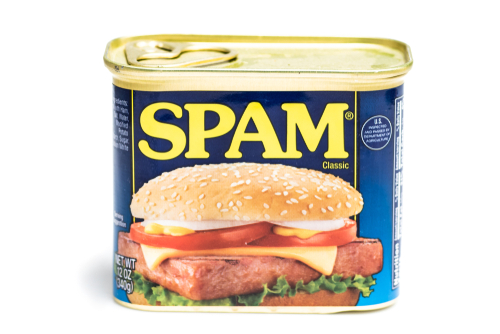Google Ads Rolls Out a Useful AI Update for Brand Keyword Matching
Keyword Match Types and the logic that goes into matching them to Search Terms has been evolving and changing for years. The saying goes “Exact Match is no longer Exact”, with Google continuously trending toward less precise targeting, instead leaning on machine learning to widen the scope of keyword targeting to include longtail and new search terms that can’t be predicted.
The latest announcement from Google includes 4 key changes that will have PPC advertisers changing the way they work with their brand and the unique search terms in that sphere.
- Mispelled search terms are becoming easier to manage! If you’ve ever struggled to add negatives of all the potential mispells of a brand term, this AI-driven update means advertisers need only add the core brand term. AI will ensure that mispells are included.
- Brand Exclusions across ALL keywords and DSA campaigns are rolling out, expanding the Performance Max feature to core campaign types.
- Additional suggestions for Brand keywords and search terms, which turns a Broad Match keyword into a wider brand “sphere” targeting-signal, allowing for “Brand Generic” keywords to filter through more often.
- Previously un-trackable “Other” search terms will now start showing, giving advertisers more direct control over targeting and exclusions – this last one allows PPCers to “rein in” the expanded targeting that the expansion caters to.
All of this trends towards more consolidation in Google Ads campaign structure, encouraging less fragmentation between Brand and Non-Brand campaigns, joining them up to act as a “Messy Middle Search Campaign”.
June 2024 Spam Update
On 20th June 2024, after originally teasing that it would happen in May 2024, Google announced that they are rolling out the June 2024 Spam Update.
This is the “Core” element of the Spam update that had been previously announced in March 2024.
The update is focused on rewarding websites with good quality backlink profiles, and actively penalising websites that use spammy practices.
Find out more
Google’s New “Web” Filter
On Tuesday 14th May 2024, Google announced a new “Web” filter that shows only text-based links in the Search Results.
This filter appears at the top of the results page, alongside other filters as part of the “More” option that already exists.
We think this will bring some interesting insights on how people prefer to interact with the SERP. Will there be a demographic shift? Will certain industries opt for the “Simple” results over the “Rich” results? Only time will tell.
Find out moreAI Summaries Rolling Out Across The US
Google has revealed at its I/O developer conference on Tuesday 14th May a significant shift in the way the search engine will look and feel, centred around AI integration.
The update includes the introduction of “AI Overviews”, formerly known as Search Generative Experience (SGE). This new feature, which is powered by Google’s own AI tool, Gemini, will generate summaries at the top of the search results based on understanding queries and content found from various relevant topics across Google’s index.
The rollout will initially be for the US only, with the possibility of being rolled out to billions more users in other countries by the end of the year.
AI overviews are expected to generate a higher click through rate than the standard organic search listings that we have grown familiar with over the years, but interestingly, Google will not yet present the breakdown of data for clicks and impressions in Google Search Console for AI overview links.
Find out moreGoogle Adds “Conversion Annotations” to Shopping Placements
In a world of GA4s, Consent Modes and Enhanced Conversions, we’re always grateful to see a simple, sensical update from Google, and happy days – a new one has just rolled out.
“Conversion Annotations” allow advertisers to give Social Proofing labels to products based on the specific product popularity.
For example, in PLAs you’ll start seeing things like
- “best selling”
- “1k shopped here recently”
- “100+ shopped in the past month”

The good news is this is a simple setup (IF you already have conversion tracking setup in your Google Merchant Center settings) – check out Google’s instructions in our link below.
This update is bound to increase CTR and Conversion Rate for advertisers. We’re keen on seeing what it’ll do for our own clients.
Read more on Google's Support hubThe March 2024 Core Update Concludes – 45 Days Later…
On March 5th 2024, Google announced that it was rolling out the March 2024 Core Update, which had a focus on poor quality content and websites that abuse content scaling. Google said this would likely take 4-6 weeks to conclude rolling out.
50 days passed by and the SEO community believed this update was still rolling out and set to be one of the longest roll-outs in history (the longest being the Page Experience update in June 2021 which took 79 days!)
However, on April 26th 2024, Google confirmed that the update had concluding rolling out on April 19th – 7 days prior to this announcement.
It’s unclear why Google had decided to delay the announcement, but we can all breathe a sigh of relief knowing it’s over… For now!
Find out moreGA4 “Key Event” Update Initially Perplexes Advertisers – March 2024
Google announced a push for “greater consistency” with Google Ads, with an impending GA4 update that replaces ‘conversions’ with ‘key events’.
Most advertisers and GA4 users are used to using the same terminology as Google Ads (“conversion”), making the insistence from Kamal Janardhan, Google’s Senior Director of Product Management, that this is an “improved, more unified experience” a bit confusing.
How this will impact advertisers predominantly using GA4 goal tracking remains to be seen, but in the meantime, this could be a key step in differentiating Analytics and Ad platforms more definitively for the industry: Google Ads is a platform for performance and optimisation (conversion), whereas Analytics is arguably for reporting and measuring user behaviour (key events).
A minor difference, but an important one to keep in mind.
Read more on Google's blog announcementGoogle Adds Social Media Posts to Business Listings
It has been announced that after adding social media profile icon links to Google My Business listings, Google will be introducing a new social media posts section within business listings in Search!
Google Business profiles will now have a subsection for social media updates that will be automatically populated with the latest social posts once the accounts are linked up. You can link up your Pinterest, Facebook, Instagram, X/Twitter, Youtube, LinkedIn and TikTok accounts.

Image Source: Search Engine Journal
Although most accounts will need to connect up the social profiles with the GMB, Google has said that they may automatically link social accounts in some cases.
This is a really interesting update as it adds more importance to the need for up-to-date social media accounts. If a business has poor social media, it’ll look bad pulling through in the SERP. If a business doesn’t link up its social media or any channels, it’ll look poor vs. competitors who do.
Let’s keep an eye on how the integration of social media and search progresses as this update rolls out!
Find Out MoreInteraction to Next Paint (INP) Replaces First Input Delay (FID) as a Core Web Vital
On 12th March 2024, Google officially replaced First Input Delay (FID) with Interaction to Next Paint (INP) as a Core Web Vital metric and will be used moving forward to assess the Page Experience on your website.
The key difference between FID and INP is that INP measures interactions beyond the user’s first input. This gives us a much more accurate representation of User Experience, as we’re now able to measure how quickly a user can navigate from page to page.
This won’t be a groundbreaking update that will shake up rankings significantly – but if you’re not scoring “Good” across your Core Web Vital metrics, we’d recommend that you consider it as part of your strategy.
Find out moreMarch 2024 Core Update and New Spam Policies
On 5th March 2024, Google began rolling out their March 2024 Core Update along with new policies regarding spam.
Unlike other Core updates, this came with a lot of detail from Google on what the update will be targeting.
Overall, the update is designed to improve the quality of Search by showing less content that feels like it was made to attract clicks, rather than demonstrating a sincere interest in your users’ needs.

The Spam Policy updates aim to better handle the practises that can negatively impact the quality of Google’s search results.
A full write-up from Google Search Central’s blog can be found below.
Find out moreConsent Mode v2 & Enhanced Conversions Presents both a Risk & Opportunity – March 2024
This month, advertisers across the UK & Europe will begin navigating the minefield that the mandatory Consent Mode v2 update presents.
In a bid to strengthen compliance with data privacy laws, Consent Mode v2 requires advertisers to be more strict on their cookie policies, giving users a heightened ability to disregard cookies.
This poses a massive risk to all advertisers regardless of their preferred ad network, but Google Ads especially relies on cookie data in order to bid and optimise profitably.
The good news is that this will motivate users to migrate fully to gtag tracking – a long-standing best practice for goal tracking, and a method that Google continuously recommends for accuracy and optimisation. The other opportunity for advertisers is utilising Enhanced Conversions – an advanced user-tracking datalayer that improves Google Ads attribution and reveals “true” insight into how important assisted conversions are.
This update will undoubtedly cause a headache for advertisers as they implement and troubleshoot Consent Mode v2, but a strong focus on gtag and Enhanced Conversions will help mitigate the impacts on tracked revenue.
Read more on Google's Support hubGoogle Reviews Update – November 2023
Starting on the 8th November 2023, and finishing on the 7th December 2023, this will be the last time that Google confirms an update to the reviews algorithm.
What is now likely to be a realtime system, due to the ever-increasing deluge of fake reviews across sites thanks to services such as ChatGPT, all publishers of sites with reviews should keep their eyes open for increased levels of seemingly natural reviews.
It is going to be tough for publishers to know if Google’s review algorithm is rewarding or punishing them. The only way to be entirely safe is to give enough internal resource time to ensuring that any added reviews are as genuine as possible.
There is almost certainly going to be many sites that have been using fake reviews with ranking headaches over the next few weeks.
Find out moreNovember 2023 Core Update
The November Core Update started to roll out on the 2nd November and concluded on the 28th, only a few weeks after the October Core Update.
During this period and like in many other updates, many sites saw volatility in their keyword rankings. But in the early stages of the roll-out, many other SEOs noticed the impact quickly, which implies that there were significant changes being made at the time.
Like with many Google Core Updates, there aren’t clear actions to take for recovery, but as always it’s important to monitor which areas of your website were impacted to review whether any further action is required.
Interestingly, Google released another update during this period, with the Google 2023 reviews update beginning to roll out on the 8th November – meaning two updates overlapped with each other.
Find out moreOctober 2023 Core Update
This Core Update marked Google’s 3rd broad core algorithm update of 2023, rolling out just 1 day after the Spam Update.
This update began rolling out on October 5th 2023 and concluded 2 weeks later. Due to the overlapping of this update with the Link Spam Update, it was difficult to identify its individual impact.
In usual form, Google declined to provide any specifics about the update and encourages users to follow best practices.
Find out moreOctober 2023 Spam Update
On October 4th 2023, Google announced that they were rolling out a Spam Update to their algorithm, which concluded its rollout after 2 weeks.
This update improved spam detection, largely in non-English-speaking markets, which resulted in many spammy websites losing Organic visibility.
However, this update preceded the October 2023 Core Update which began rolling out the following day, so measuring the impact was challenging.
Find out moreSeptember 2023 Helpful Content Update
This update officially marked the third “Helpful Content” update that Google has ever rolled out, however it was the first of 2023.
The Helpful Content Update rolled out over 13 days and rewarded websites that Google deemed to have “Helpful Content” for their users.
This update impacted rankings more significantly than the previous two, which is theorised to be due to the rise in AI content.
Find out moreAugust 2023 Core Update
The August 2023 Core Update began rolling out on August 22nd 2023, with the roll-out concluding 16 days later.
Prior to this update (starting in July) there were significant ranking fluctuations across Google’s SERP, meaning that measuring the impact and interpreting its purpose was a significant challenge.
As with all Core Updates, Google didn’t release any information on what this update was targeting.
Find out moreHow-to and FAQ Changes
On August 8th 2023, Google announced that rich results in their SERP that were based on “How To” and “FAQ” structured data would be reduced… in some cases.
This alarmed SEOs as it was believed these would only appear for high-authority Medical Advice websites, but so far we’ve seen mixed results, with very few reductions on Desktop SERPs.
We’d recommend importing your keywords into a tracking software so that you can monitor the presence of rich results.
Find out more
Google Analytics 4 Officially Replaces Universal Analytics
The forced migration away from the long-serving Universal Analytics (UA) to Google’s newest analytical platform Google Analytics 4 (GA4) is a historic transitional moment in digital marketing. Advertisers now have no choice if they were previously using UA but to use GA4 if they to track the performance of their websites as UA officially stops processing website visitors as of today. It is now imperative for any advertisers to migrate from UA to GA4 in order to stop any potential data loss.
Find Out More at WordstreamStore Sales Reporting & Bidding in Performance Max
Did you know that Omnichannel shoppers make 2.9X more purchases and spend 2.3X more than single-channel shoppers? As such, it has become increasingly more important to effectively measure impact across online and in-store purchases.
Google has stepped in to answer this call with store sale reporting and bidding now available within Performance Max campaigns.
This new level of reporting will allow advertisers to see the impact and value of their ads by using your sales data in a privacy-safe way. By unlocking this reporting tool, you will be able to: – use smart bidding to optimise towards shop sale conversions. – have a holistic measurement for ROAS across both online and offline sales – align your reporting across shop and online sales so advertisers can learn about ad-to-shop conversion rate by campaign. If you have a brick-and-mortar store and are looking to see more easily the impact of your paid search campaigns, then uploading your store sales data is the right way to go
